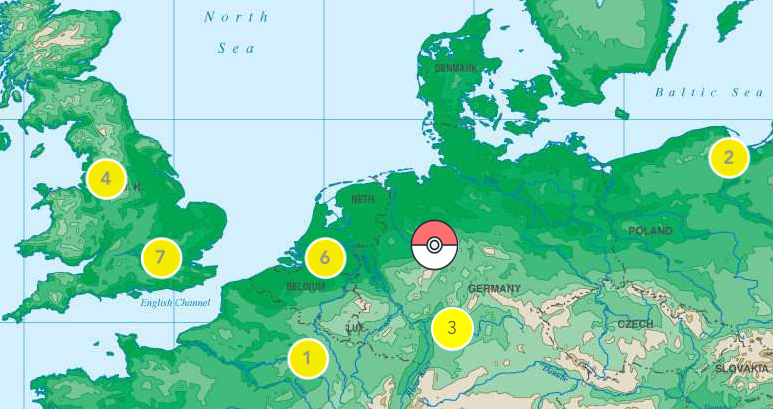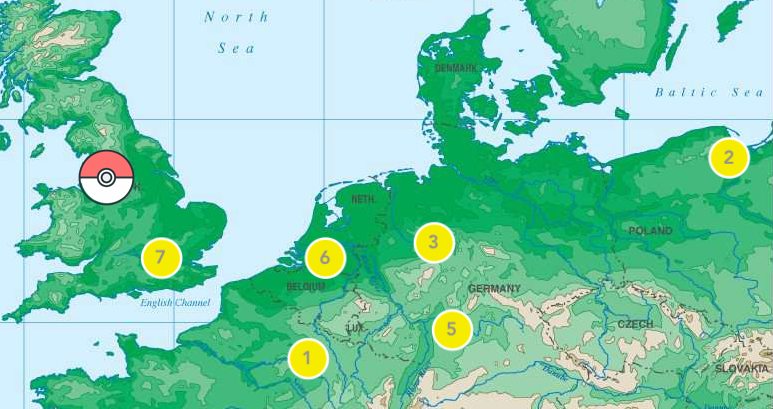Buzzwords that won’t die: Gamification
This past weekend, I was playing Super Mario Odyssey with my two sons, ages 4 and 7, when I had a dual revelation:
1. This game is the most fun single player video game ever.
2. Between the 3 of us, we are actually playing 3 different games that are all completely satisfying...and that’s incredible.

*Oh Tostarena, we may never leave (Source)*
4-year-old Nate’s version of Odyssey is a game where he uses the motion sensor in the controls to jump around in real life and see what he can make Mario & Cappy do on the screen. 7-year-old Tommy is playing a game that is about accumulating coins and using them to buy cool costumes. Me, I’m exploring worlds just to see what’s out there. Notably, none of us are actually trying to beat the game. (See also 80% Solutions)
Later that day, I finally unpacked that lost box of books that has been lingering since we moved houses in December, and I found my long lost copy of Jesse Schell’s The Art of Game Design, about which I have long told anyone willing to listen that if you swap the word “game” for the word “learning” everything in that book still holds up. And first it took me to a bright place of warm recollection and fondness...and then it took me to a dark place, so allow me a brief rant:
The word “gamification” makes me gag, but it’s not really the word’s fault. It’s the way it has been horrifically misused. There is indeed such a thing as good gamification, even good gamification within education (I’m looking at you, Carmen Sandiego...you too Gigi the Penguin...and, yes, even you Mr. Number Muncher).

*90% of what I know about history or geography came from this sneaky fingered filcher (Source)*
Too often when people gamify something, what do they do? They add a point system to a task that no one would otherwise want to do, and as a result... no one still wants to do it, and now they feel manipulated. We don’t, for instance, insist that Equifax has gamified consumer credit because now everyone has a credit score. No no - we hate them for it.
I don’t think John Dewey was ever subjected to hearing someone use the term “gamification,” but he did speak right to the heart of this problem. In his pedagogic creed, he declares, “The interest is always the sign of some power below; the important thing is to discover this power. To humor the interest is to fail to penetrate below the surface and its sure result is to substitute caprice and whim for genuine interest.” And that last part gets to the heart of the problem with cheap gamification - it’s a flash in the pan at best, and a fumbling manipulation at worst.
Before you all go off onto your social medias declaring that Seth Trudeau is anti-games (because this is a thing that absolutely could happen in the realm of reality), let me just say that not only am I very much pro-games, I also would say there’s a relatively simple checklist to be able to evaluate if what you’re building is actually a game or if it’s caprice and whim:
1. Games have objectives. Players have to know what they are trying to achieve.
2. Games have rules. Players have to know what they can and can’t do to achieve those objectives (and also be able to extrapolate what falls in a gray area)
*by the way, so far Equifax can check these boxes...the first two are the easiest
3. Games are fun. Players find some form of enjoyment in participating in them. This is the hard part, especially so in education games because far too often we approach these things thinking, “how can I make xx fun?” When the right question is actually, “what is it about xx that is inherently interesting?”
If you’ve got boxes 1 & 2 checked, but you’re stumped on 3, Marc Leblanc is here for you. Check out his descriptions and talks about the 8 kinds of fun. It might just change your world.
Plenty of links in here already this week, but if you’re looking for something in a totally different vein but all about another buzzword that won’t die, perhaps you’d enjoy Joi Ito on AI and the cult of Singularity?
A fun question to close out this time around: what game do you feel like you’ve learned the most from? Feel free to respond here, or @ me on the Twitters (@MrTrudeau). I’d love to hear from you.






Member discussion